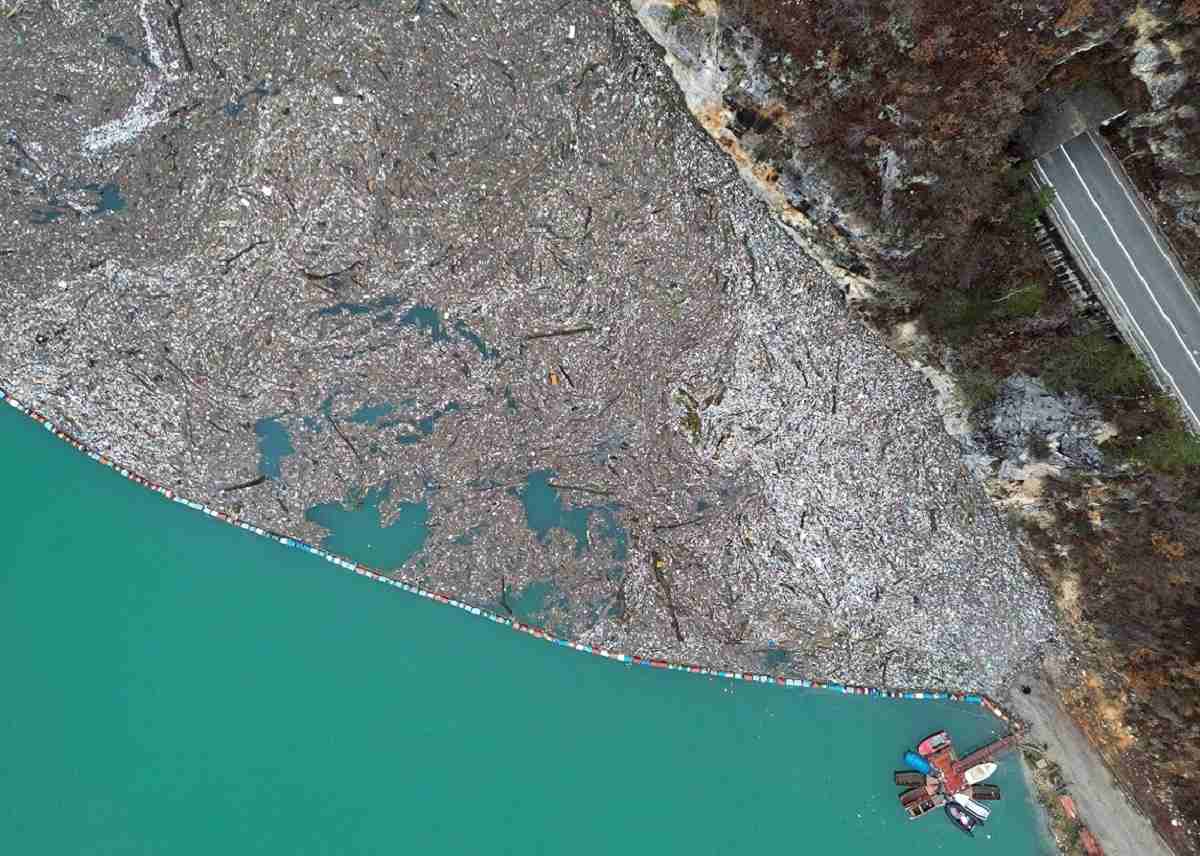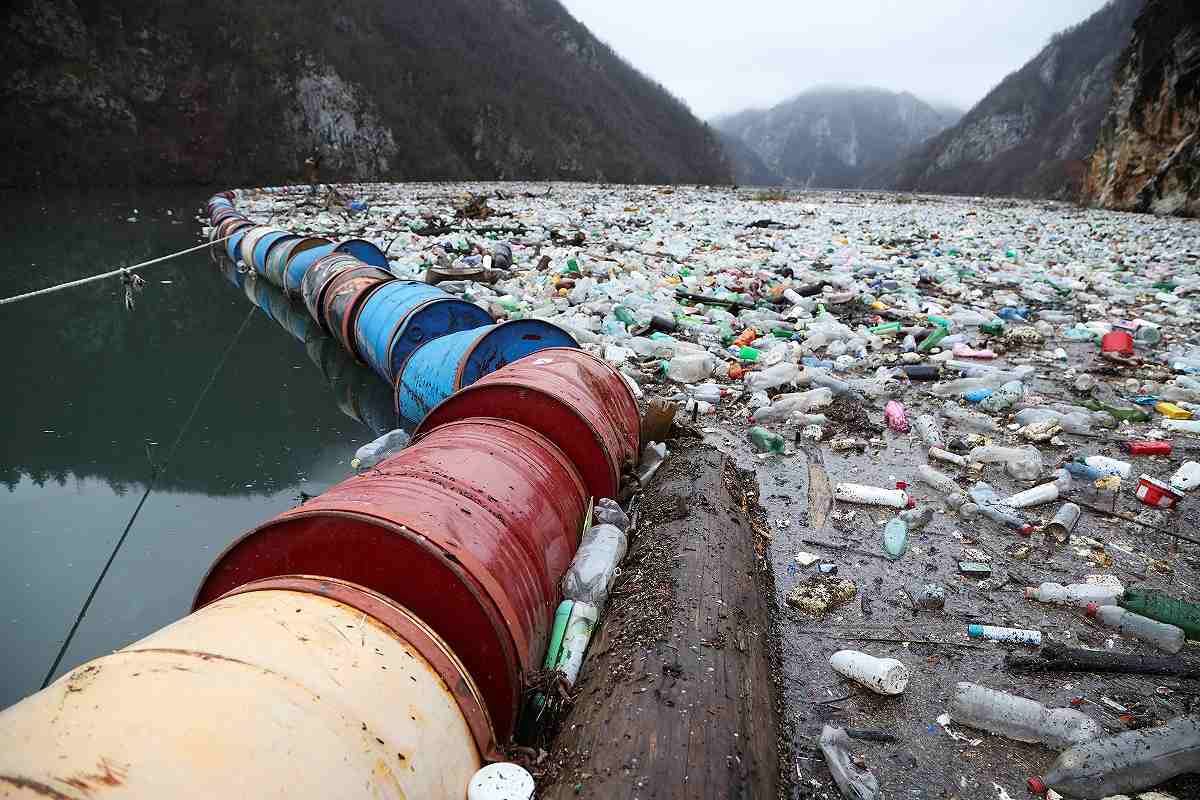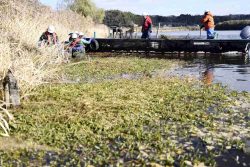
Waste, including plastic bottles, used tires and other non-organic waste, which floats on the Drina river, is seen in Visegrad, Bosnia on Jan. 5.
13:16 JST, January 18, 2024
VISEGRAD, Bosnia (Reuters) — Visitors to the otherwise picturesque historic town of Visegrad in eastern Bosnia are first greeted by the sight of a huge floating waste dump caught in the deep turquoise waters of the Drina River canyon. The tons of floating garbage, mostly plastic bottles, are a threat to the local tourism-based economy and there are also fears about the impact on people’s health when it is eventually burned.
The Drina winds its way through Montenegro, Serbia and Bosnia, where the Visegrad hydropower plant built a makeshift barrier out of old oil drums in the depths of the canyon some 20 years ago, protecting its dam from the debris carried by the river.
“There are about 5,000 cubic meters of different kinds of waste,” said Eko Center Visegrad’s Dejan Furtula, pointing to the trash barrier. “It comes from all sides and this scene repeats each year, unfortunately.”
Furtula said the rubbish, which also includes the occasional home appliance, is carried from the Drina’s upstream tributaries where rising water levels after heavy rains or snow wash garbage from nearby waste sites into the river.
“You can find literally anything you can think of in the Drina River … dead animals, medical waste, car parts,” Furtula said. “We are like a sort of a regional waste depot because this trash has not been produced by Visegrad citizens but by those living in towns upstream.”
He said toxic waste threatened the river’s delicate ecological system and also the air Visegrad citizens and visitors must breathe when it is burned.
“This is a big disaster and shame for all of us, we are showing the world a bad picture,” Furtula said, adding that ecologists suspect the river is also contaminated by heavy metals, and that a thorough water analysis will be undertaken this year.

Environmental activist Dejan Furtula gestures near the floating rubbish dump in the canyon of the Drina River.
Owners and employees of hotels and restaurants in Visegrad, known for its Ottoman-era bridge made famous by Yugoslav Nobel literature prize winner Ivo Andric, also complain that the waste dump is hurting tourism.
“Tourists first spot the garbage dump in the Drina and make negative comments — this influences both the tourism and the people who live here,” said Dijana Rajic, chief receptionist at the Andricev Konak hotel.
The Visegrad hydropower plant could not immediately be reached for comment over a holiday period.

Waste, including plastic bottles, used tires and other non-organic waste, which floats on the Drina river, is seen in Visegrad, Bosnia on Jan. 5.
Top Articles in Science & Nature
-

Japan Institute to Use Domestic Commercial Optical Lattice Clock to Set Japan Standard Time
-

Japan to Face Shortfall of 3.39 Million Workers in AI, Robotics in 2040; Clerical Workers Seen to Be in Surplus
-

Record 700 Startups to Gather at SusHi Tech Tokyo in April; Event Will Center on Themes Like Artificial Intelligence and Robotics
-

iPS Treatments Pass Key Milestone, but Broader Applications Far from Guaranteed
-

iPS Cell Products for Parkinson’s, Heart Disease OK’d for Commercialization by Japan Health Ministry Panel
JN ACCESS RANKING
-

Japan PM Takaichi’s Cabinet Resigns en Masse
-

Japan Institute to Use Domestic Commercial Optical Lattice Clock to Set Japan Standard Time
-

Israeli Ambassador to Japan Speaks about Japan’s Role in the Reconstruction of Gaza
-

Man Infected with Measles Reportedly Dined at Restaurant in Tokyo Station
-

Videos Plagiarized, Reposted with False Subtitles Claiming ‘Ryukyu Belongs to China’; Anti-China False Information Also Posted in Japan

























